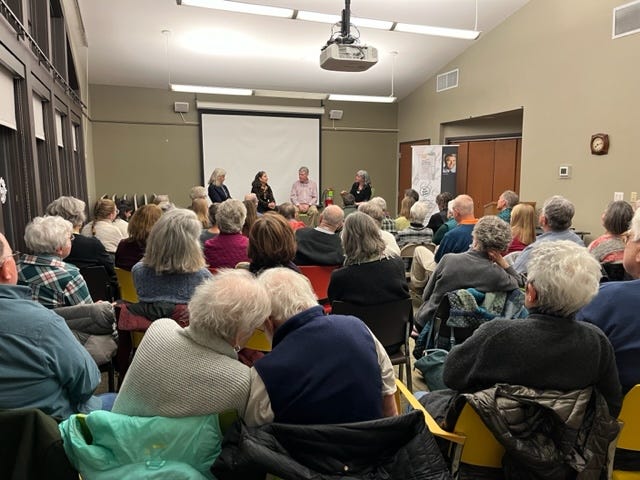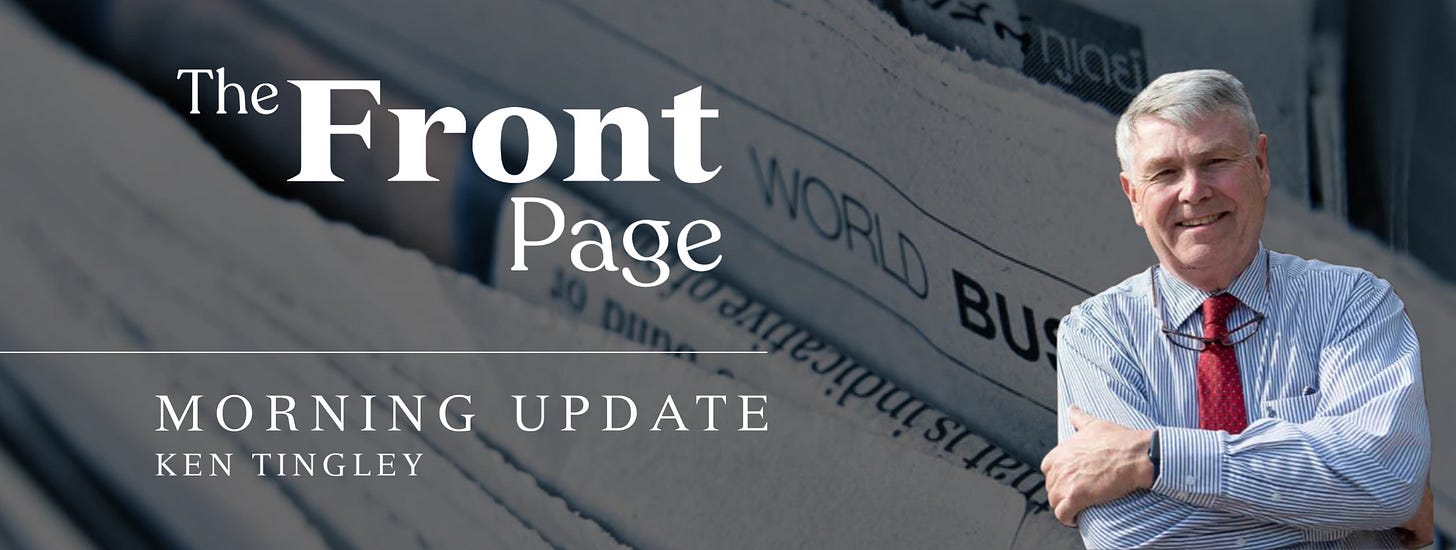Small towns are prone to small controversies, so who is going to cover them in the future
18 hours without power on Tuesday was a reminder of how spoiled we all are
By Ken Tingley
The most encouraging thing Thursday night was that more than 50 people turned out to hear three journalists talk about newspapers and its future.
But there was more for me.
After the event, I met a teacher from Greenwich Central School who told me she was an advisor for the newspaper club and had 10 students involved.
That was encouraging, too.
Another young woman, who was an intern for an Albany radio station, talked to me about her passion for journalism. I encouraged her, but acknowledged that carving out a career with a livable wage was more daunting than ever.
Over the past few months, I’ve talked to more than a dozen groups about the work we did in Glens Falls and the difference it made in local communities.
I’ve repeatedly asked: Who will do that work in the future and how will it impact our communities if it is not done?
I’ve gone into detail on many of those stories.
I’ve talked about the many times we held local government boards accountable and demanded transparency.
I recently stumbled on a story from 12 years ago about the Town of Hartford.
A young reporter named Lydia Wheeler was tipped off a town councilman had been helping himself to bucket loads of sand and salt from the town’s stockpile.
The highway superintendent confirmed it was true and two other highway workers had seen the councilman drive up with his bucket loader and take about a ton of sand and salt back to his dairy farm.
The highway superintendent pointed out there is a small sand pile available to residents for free, but the sand stockpile is not intended for commercial use. When the reporter contacted Superivisor Dana Haff - he is still there today - he initially said he would ask the councilman for restitution. He eventually called the Washington County district attorney and asked for an investigation.
This was a clear case of the councilman abusing his position on the board and receiving materials for his own personal use paid for by taxpayers.
The reporter wrote the story.
But when the Town Board met, 35 residents turned out to criticize Haff for asking for an investigation. They argued that a dairy farm was not a “commercial business.”
They said this was a “witch hunt” - and remember this was 2011 - because Haff and the councilman and disagreed over the purchase of some culverts by the town.
Several said the councilman should not be prosecuted.
Some argued that everyone did it even though I’m sure “everyone” in the town do not own dairy farms.
But here’s the worst part.
The young reporter covering the meeting was repeatedly harassed by those in attendance who screamed at her and demanded to know who tipped the story - it was an anonymous source. They said there should have never been a story in the newspaper.
One person told Wheeler, there should have been “a backroom deal” to rectify the situation. That’s why newspapers cover town meetings, so there are no backroom deals.
The crowd yelled that Wheeler did not check her facts.
They told her she had slandered the councilman.
Yet, no one called to complain to the editor.
I wrote at the time:
“It was wrong and uncivil to treat a professional reporter the way that Wheeler was treated at Tuesday’s meeting. No matter how much you disagree with someone over an issue, you don’t gang up on one person and treat them the way Wheeler was treated. These people were adults and they acted inappropriately. They should have known better. They should be ashamed of themselves and they owe Wheeler an apology. I won’t hold my breath. Bullies rarely ever admit they were wrong.”
In the end, the bullies prevailed. The Town Board decided to step back from any legal action against the councilman.
When Haff made the motion to notify the district attorney’s office the board was backing down and giving an elected official preferential treatment, applause erupted in the room. The measure was passed 4-0 with the accused councilman abstaining.
These are the small-town controversies we rarely hear about anyone.
The Post-Star no longer covers town of Hartford meetings because it does not have the resources.
Lydia Wheeler now works as a journalist in Washington, D.C. covering health care for Bloomberg Law.

Book tour
For the first time I will be making a North Country swing to talk about my book “The Last American Newspaper,” journalism and newspapers.
The St.Lawrence County Democrats have asked me to speak next week about newspapers and journalism. I’m not sure if they are aware that I was a registered Republican for a good chunk of my adult life and that my disgust over how political parties conduct themselves led me to retreat to being an independent.
Considering my criticism of Rep. Elise Stefanik,I suppose it would be even more remarkable if local Republicans invited me to speak.
The event will be at the NYSUT conference Center in Potsdam on Wednesday, March 22 at 6:30 p.m.
The next day I will be speaking to the Plattsburgh Rotary Club.
I was hoping the snow would be gone by then, but I doubt it.
Both events come on the heels of an interview I had with Mountain Lake PBS.
Powerful reminder
When the electricity went out at 7:30 Tuesday morning, it was not a cause for concern. We have a wood stove and generally have the power back within a few hours.
But as morning dragged into afternoon and then into night and the battery power on my phone and iPad wasted away, we were reminded of how dependent we are on life’s little conveniences - like running water and WiFi.
My wife boiled water on the wood stove, baked potatoes there and cooked some pork shops on the grill outside.
I was reminded of my dependence on electricity after I plugged in the snowblower and realized it would be futile to use the electric starter. Thankfully, the snowblower started up on the first pull, although it took two pulls the second time I did the driveway.
The electricity finally came back on about 1:30 a.m. It was the longest outage in memory for us and I’m sure there are many others that had it far worse. But we were glad to be back in the modern world.





The Hartford story is appalling on so many levels. Thank you for writing about it then and today.
While the news industry has serious problems (Is that an understatement?), I think you have to make lemonade out of your lemons (which this site is doing) and embrace the digital world- it's what we're stuck with. My Dad wrote for over 35 years- up until 9 months before he died at the age of 86 in 2021- for the Archdiocese of Philadelphia's newspaper. That was its own kind of community paper, with quite a following, actually, in blue collar Philly. He would agree with you about the need for community papers, whether it is a geographic or affinity community. He thought the secular press would rarely cover what his paper did and when it did, it did so from a secular viewpoint, not the viewpoint of his community.
Anyway, the punchline is that the well-regarded Philadelphia Catholic Standard & Times was shut down over a decade ago by a not-so-well-regarded Archbishop. Jobs were lost, but a very good editor switched to a completely digital platform- CatholicPhilly. com which has survived to this day and flourishes. No, it's not the same as print, and many constituents have technology barriers, but it is still pushing out news no one else will. And my Dad kept banging out the stories for them when it transitioned; he was a prolific writer, google Lou Baldwin Catholic Philly if you're interested.
I think it is a challenge for community papers to survive- and one not to be minimized- and I think we need to mobilize the community to help keep them going, but there is a universe of people out there who still want information.